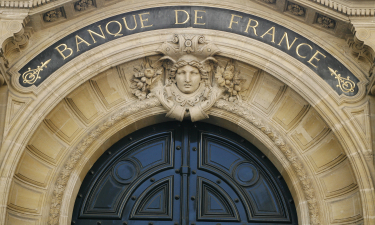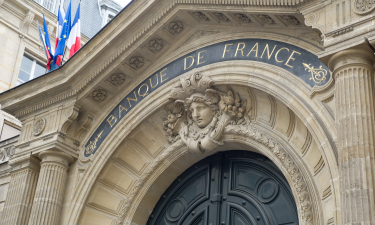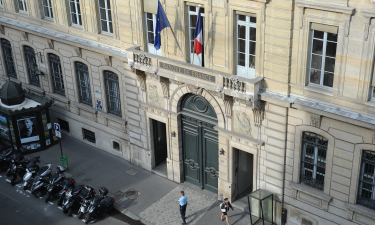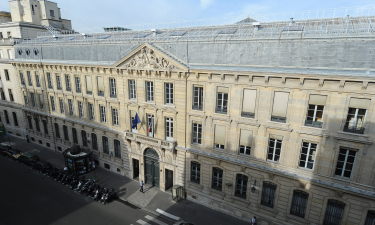The Banque de France is indeed a bedrock of stability that has helped to cushion the severity of the crisis. In the euro area, the recession was 6.8% in 2020. In France, the loss of activity was dramatic during the first lockdown in the spring, but limited to 8.2% for the year, thanks to the exceptional rebound observed in the third quarter. Public support made a massive contribution to building a “financing bridge” for all companies and preserving the overall purchasing power of households. As a result, French government debt exceeded 115% of GDP at the end of 2020. Can such a high level be sustainable? Yes, if the economy recovers and if a more controlled public spending path creates additional leeway. The European Union’s exceptional recovery plan announced in July 2020 amounting to EUR 750 billion will be a cornerstone, the quality of which depends on the quality of the investments for the future.
2020 was a very difficult year for both health and at the human level, as well as in terms of loss of activity. But it was also the year in which previous trends gained momentum: digitisation and the use of technology for an innovative economy; greening and efforts to make the economy more responsible and sustainable. The Banque de France has contributed to this: our network of central banks and supervisors comprising the Network for the Greening of the Financial System (NGFS) has grown to over 80 members, including the US Federal Reserve, since 12 December 2020. It enhanced its responsible investment policy and committed to phasing out coal-related investments completely by 2024.
Above all, we are striving to be an increasingly efficient, resilient and accessible public service. Support functions – including HR, property management and logistics, and IT – were key players in this drive in 2020. The Banque de France continued its internal transformation in order to prioritise the allocation of public money to the best service for the community, where the needs are greatest. It reduced its management costs and its operating expenses, while continuing to recruit, with over 380 new hires in 2020. By meeting or exceeding all of the targets of the Ambitions 2020 plan, it has shown that it is possible to achieve a triangle of success for the benefit of all: lower costs, more services and a maintained nationwide branch network.
This fundamental work, which is undeniably demanding, and this contribution to the common good have been accomplished through our three core tasks of monetary strategy, financial stability and services to the economy and society, which we call the “3S’s”.
In terms of monetary strategy, the Banque de France actively participated, within the Eurosystem, in developing and implementing a monetary policy strategy to combat the crisis; it responded immediately, massively and effectively – through banks and markets – to refinance households, companies and the government at low rates, thus preventing the financing of the economy from being impeded. Banque de France economists, market operators and staff in the regions joined forces to achieve this. State-guaranteed emergency loans, totalling EUR 130 billion, were successfully channelled to SMEs. Credit Mediation was offered to more than 14,000 companies, fifteen times more than usual, thus helping to preserve nearly 80,000 jobs. High-quality banknotes were made available throughout the country, even at the height of the lockdown.
As regards financial stability, the successes were also achieved through joint efforts, notably by the Autorité de contrôle prudentiel et de résolution (ACPR – Prudential Supervision and Resolution Authority) and the experts of the Haut Conseil de stabilité financière (HCSF – High Council for Financial Stability). If we have managed to avoid a financial crisis this time, it is also thanks to the enhanced soundness of our banks and insurance companies, which are well supervised and subject to strict minimum capital requirements. At both the macro- and microprudential levels, staff monitored institutions, anticipated risks and subjected banks to stress tests. The Banque de France is preparing for the future, with the necessary completion of the Basel III agreement for banks and the review of Solvency II for insurance companies. The future is being shaped by exploratory work on a possible central bank digital currency, aimed at preserving security, modernity and the freedom of choice of payment means.
With services to the economy and society, the Banque de France has remained close to citizens throughout France thanks to the development of online services to individuals and SMEs. The network has been remarkably active in each département. The fight against household overindebtedness, economic and financial education, and the right to a bank account are grassroots efforts that have protected the most vulnerable and paved the way for more sound economic and financial decisions. We are keenly looking forward to the reopening of our beautiful Cité de l’économie – Citéco – to welcome the public in the heart of Paris. The sensitive company rating exercise was carried out with credibility and flexibility; our VSE-SME correspondents processed more than 12,000 requests.
We have started to develop new formats to inform the economic debate. The success of our blogs, experts’ views, shared on social networks, testifies to the high demand for information from all audiences, including less specialised audiences. We are therefore going to step up these initiatives, in order to explain and share even more: our new project “La Banque de France à votre écoute” is both a tool for efficiency and a democratic requirement, and covers more than just monetary policy.
The health and economic crisis has highlighted the exemplary commitment of Banque de France employees. It also reminded us, if this were necessary, that we are only legitimate when in the service of our fellow citizens and the economy, in France and in Europe.
We will mobilise both technology AND people, because these are the ways in which we can rebuild a better economy: more sustainable, fairer and more skilled. This is the goal of our next strategic plan, to build the Banque de France of 2024 together.



